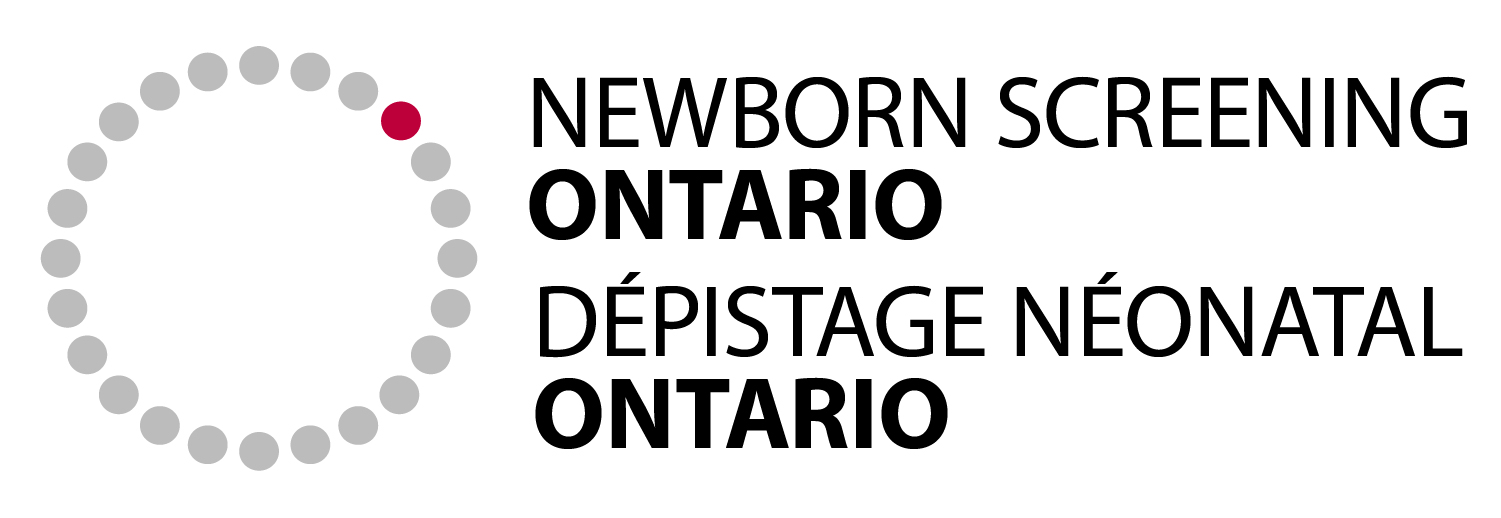- In Ontario, a heel prick is used to take a few drops of blood from each baby shortly after birth. The blood is tested for more than 25 treatable diseases, including tyrosinemia type 1.
- A screen positive result means that more tests are needed to know whether or not a baby has tyrosinemia. It does not mean that a baby has tyrosinemia. Babies identified at a young age through screening can be treated early to help prevent health problems.
Tyrosinemia Type 1
At a glance
| Approximate incidence in Ontario: | Marker measured: | Screening can prevent: | Treatment: |
| 1 in 100,000 | Tyrosine and succinylacetone | Liver and kidney damage and sequelae, failure to thrive, coagulopathy | Special diet, medication |
Tyrosinemia type 1 is a rare, inherited (genetic) disease.
- Babies with tyrosinemia cannot break down tyrosine.
- Tyrosine is a building block of protein (also called an amino acid). It is found in many foods, including breast milk and infant formula.
- There are other rare forms of tyrosinemia (types II and III), which can sometimes be picked up by newborn screening.
Screening positive for tyrosinemia type 1
- It is normal for parents and guardians to feel worried when their baby has a screen positive result. A ‘screen positive’ result does not mean that a baby has tyrosinemia. It means that there is a chance that the baby may have tyrosinemia.
- Follow-up testing is important to find out whether the baby truly has tyrosinemia.
- The baby’s health care provider or a health care provider at a newborn screening regional treatment centre will discuss the results with the baby’s family.
- Follow-up testing is arranged as soon as possible and involves blood and urine tests.
- It can take a few days to weeks to find out if a baby truly has tyrosinemia or not. This waiting period can be hard for families.
Possible follow-up test results
- Normal – the baby does not have tyrosinemia.
- Abnormal – the baby does have tyrosinemia and will need treatment. The family will be supported by a team of caring specialists.
- Inconclusive – more testing is required. The baby will be followed closely by a specialist to ensure that he/she receives optimal care.
While most babies with tyrosinemia appear normal at birth, early signs of the disease can include:
- poor weight gain (failure to thrive)
- feeding problems
- irritability
- extreme sleepiness (lethargy)
- yellowing of the whites of the eyes and skin (jaundice)
- fever
- vomiting
- diarrhea
- distinctive cabbage-like odor of the skin and urine
Early treatment helps to prevent serious and life-threatening health problems such as:
- developmental delay
- liver and kidney disease
- neurological problems
Treatment for tyrosinemia type 1 begins as early as possible and is life long.
- Treatment may include medication and a special diet that is low in protein (low in tyrosine).
- A team, including a metabolic doctor and a dietitian, cares for babies with tyrosinemia.
- Babies with tyrosinemia have their health and development checked regularly.
- Regular follow-up tests are used to monitor and adjust treatments.
Living with tyrosinemia type 1
- Children with tyrosinemia can be as healthy and intelligent as other children their age if tyrosine levels are well managed with diet and medication.
- If liver damage has already occurred, or if it occurs, a small number of children with tyrosinemia will require a liver transplant.
If your baby has screened positive for tyrosinemia type 1, click here for more information.
Contact Us
Children’s Hospital of Eastern Ontario
415 Smyth Road
Ottawa, Ontario K1H 8M8
Toll-Free: 1-877-627-8330
Local: (613) 738-3222
Fax: (613) 738-0853
